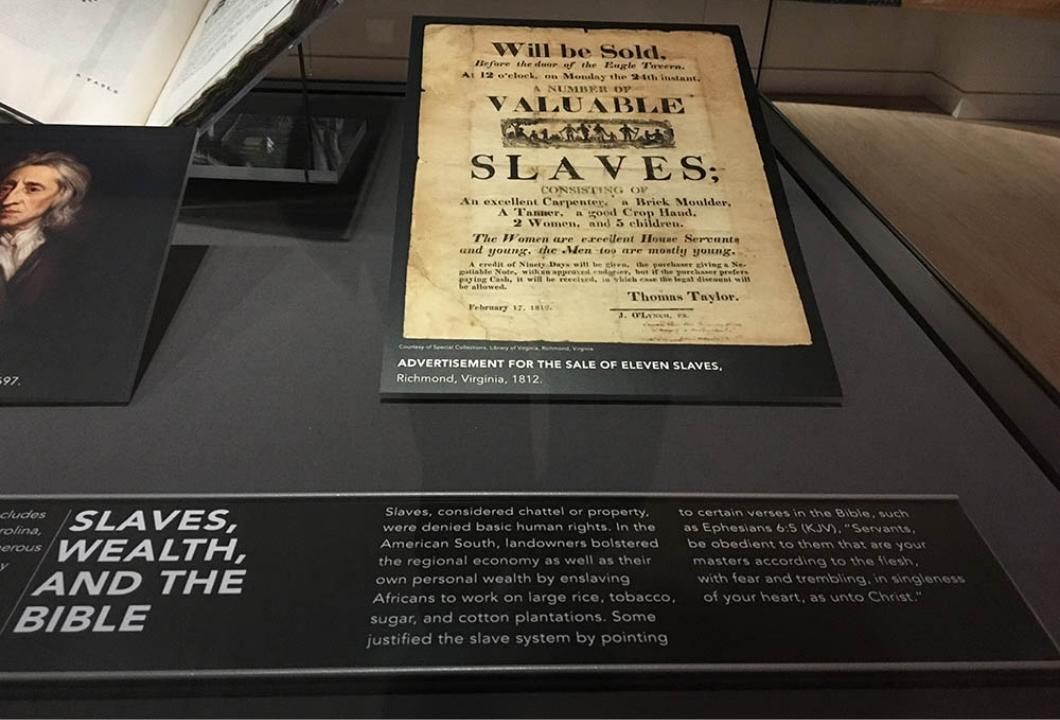Was The Bible Used To Enslave Black People?

There are lots of people who believe that Christianity is the White man’s religion and the misguided faith of our oppressors. So let’s unpack this.
Now, in the specific case of slavery, it is true that the Bible has a lot to say about it, in both the Old and New Testaments. However, in the Old Testament, slavery was not mainly race-based as we have known it to be today. It was a voluntary means of working off a debt. It was more like an employer/employee relationship that also benefited the employee. However, as sin does, it complicates and destroys everything.
To be clear, slave trading is explicitly condemned in both the Old Testament (Exodus 21.16) and the New Testament (1 Timothy 1.10), and in the Old Testament, it was punishable by death. Both testaments teach that all humans are made in the image of God, and both slaves and slave masters were equally human, protected and one in Christ (Exodus 21.20, Deuteronomy 23.15, Galatians 3.28).
One of the most popular passages used to promote slavery was the so-called “curse of Ham” (Genesis 9.20-25) when Ham’s father, Noah, cursed him for exposing his nakedness while blessing his brothers for covering him. The name Ham carries the meaning of hot or black, and the Bible refers to Egypt as the land of Ham (Psalm 78.105-106). Using the incident about Ham, many white evangelicals came to believe that the Bible supported slavery and that this so-called curse of Ham made Africans an inferior race.
Many of the clergy even argued that Christianity made slaves behave better. Therefore this perverted view of the Bible became a popular method of controlling slaves. This is one of the many reasons a great number of African Americans, some still today, reject and/or take a wary eye to Christianity because they believe it to be a White man’s religion.
First, let’s establish that it is altogether misguided to object to the veracity of the Bible because evil people decided to weaponize it for their own selfish gain.
Regardless of any individual or group’s claim to be God’s chosen agents or authoritative voice on any matter, if it doesn’t look like Jesus, sound like Jesus, and operate in the Spirit of Jesus, it doesn’t represent Jesus. History is full of wicked people who terrorized others with their evil ideas by twisting and misinterpreting God’s word in an attempt to make it support their corrupt passions. It is not the Bible that is being irresponsible or wrong but rather the people who do such things.
According to Luke 4.18, Jesus came to set captives free (spiritually and naturally) and commanded us to treat others as we would like to be treated. Although the primary goal of the Scriptures is spiritual renewal and not social reform, true spiritual redemption will always motivate social reform.
In the early 1700s, a controversial movement began to present the gospel to the slaves. Slavery was seen as a necessity for the survival of agricultural business in the south. Therefore many opposed preaching to the slaves, knowing they would automatically be freed once they received the gospel. In order to maintain oppressive control, Christian leaders and slaves owners used the Bible to teach slaves that God has divinely ordained them to be slaves.
Using the Bible, White slave owners and others convinced many slaves that they would be disobeying God if they tried to free themselves. Slaves were taught that they would be rewarded in heaven if they would only submit and perform well as slaves because this role was given to them by God Himself.
But once these slaves learned how to read and understand for themselves, they began to see the heresy in the argument of the Christian leaders, many of which were slave owners and U.S. government officials. What they began to see and understand is that Scripture AFFIRMS that all men are created free because they are created in the image of God (Genesis 1.26-28).
Originally published by Detroit Church.
Biblical References
- Galatians 5.1
- Deuteronomy 5.15
- 1 Peter 2.16
- Exodus 21.16
- 1 Timothy 1.10
Other Suggested Reading
The Color of Compromise by Jemar Tisby




Comments ()